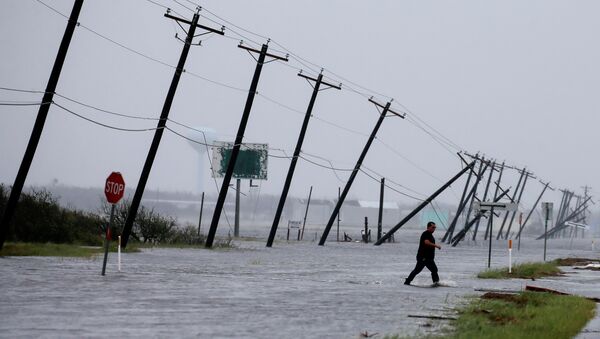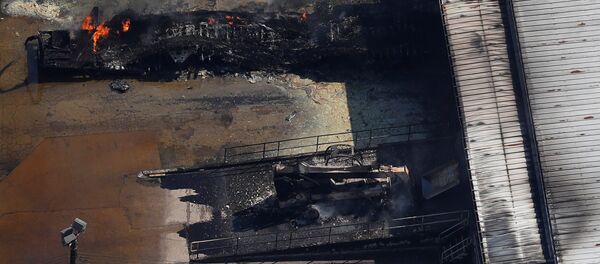Speaking to Sputnik Radio's By Any Means Necessary, Isabel Roth, a doctoral candidate for public health living in Houston, tells host Eugene Puryear that most Houstonians were aware of the destruction hurricanes could cause and weren't exactly surprised.
"For people who live in Houston, it's not much of a surprise," Roth told Puryear. "Houston residents did the math a long time ago, we saw [Hurricane] Katrina and they lived through [Hurricane] Ike."
But what often goes under-reported is the impact natural disasters can have on the most vulnerable citizens, such as the homeless.
"In the last week we had a huge challenge and for the years before this with the number of homeless folks in the city," the founder of the Houston chapter of Students for a National Health Program said. "Our resources for the most disenfranchised were already overstretched and that was before this happened."
The impact on Texas chemical plants and the fires already burning there means the region will likely see an extreme increase in chronic diseases like asthma along with serious "challenges with mental health and trauma."
"Homelessness is going to be a long-term repercussion of this; we already have a lot of people around 10,000," Roth said, adding that when Texas' even larger incarcerated population gets out, the fight over resources will be even more dire. "When these folks get out, the economy that they're going to be walking into is going to be very harsh."
The only way for Texas or any state to truly lessen the impact of of hurricanes is for officials to address their district's "economic inequalities and extreme poverty," according to Roth.



